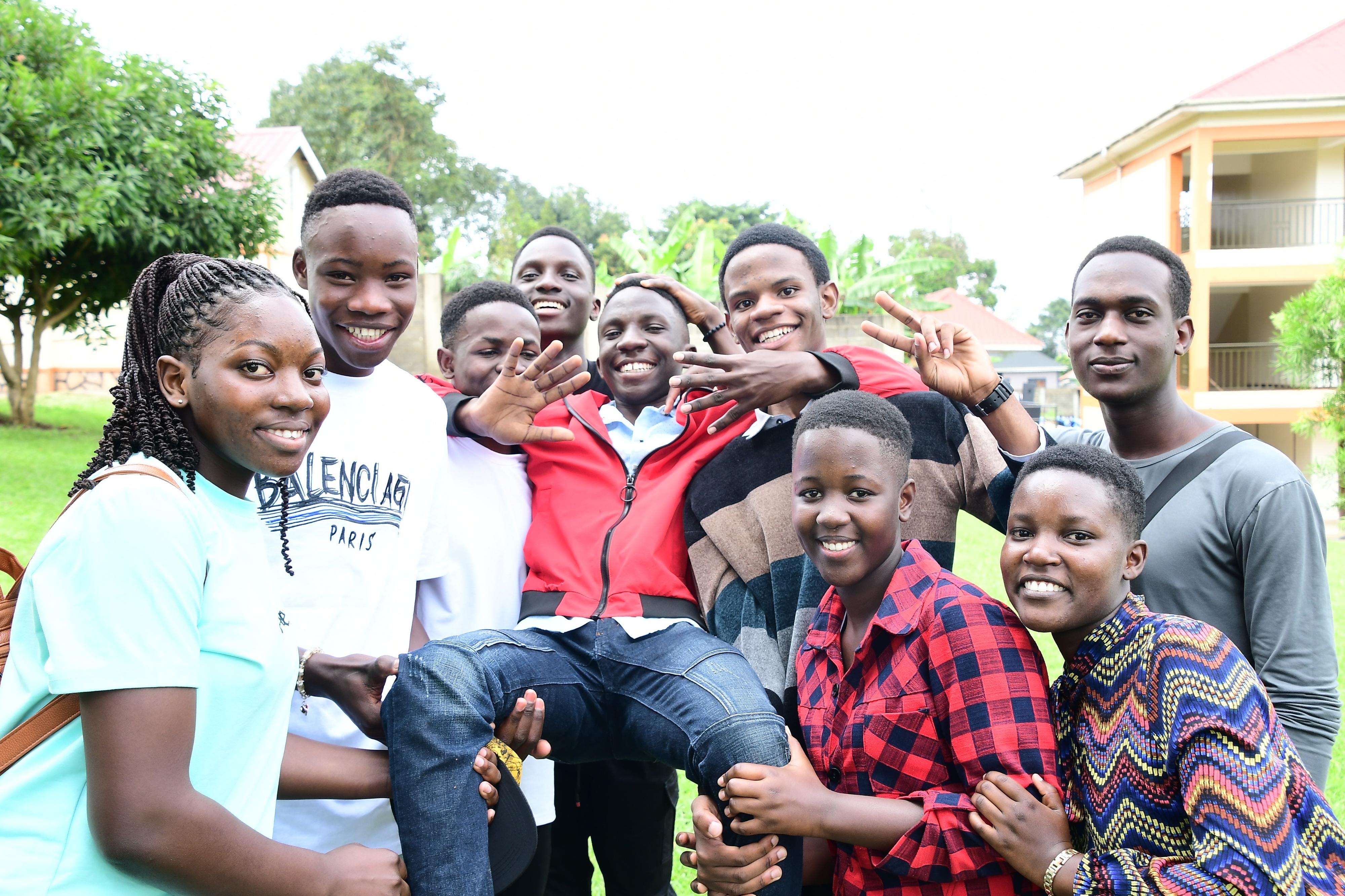Prime
Uneb grading system is automatic – Odongo

Students of St Mark’s College Namagoma lift Frank Kasekende who scored Agg 9 in the last year’s UCE. Photo/Abubaker Lubowa
What you need to know:
- This comes on the backdrop of claims that the Uneb grading system was selective and that candidates’ scripts could be easily accessed.
The Uganda National Examinations Board (Uneb) has said the grading system for all candidates has been applied uniformly using automation.
Speaking shortly after the release of last year’s Uganda Certificate of Education (UCE) results yesterday, Uneb Executive Director Dan Odongo said the grading system is first assessed by all the stakeholders.
“The Board fixes (in) the process called awards; we have a meeting with the senior examiners (who have been) responsible and look at the performance of the candidate nationally,” he told journalists.
“We look at whichever has been done in the past and then (we) make decisions on what mark corresponds to a distinction, what mark corresponds to a credit [and] what corresponds to a pass…Those points are entered into the system and the system runs automatically without any human involvement,” Mr Odongo added.
He was responding to allegations that first surfaced on social media after the release of last year’s Primary Leaving Examinations (PLE), claiming that the Uneb grading system was selective and asserting that candidates’ scripts could be easily accessed.
While unveiling the UCE results, Mr Odongo referred to the claims of skewed grading as a hoax and offered assurances that access to candidates’ scripts was highly restricted with tight security measures.
According to the grading system, a D1 ranges from 80 percent to 100 percent while an F9 starts at 0 to 39 percent and the same grading has been used at UCE in the past years.
In a telephone interview with the Daily Monitor yesterday, Ms Sylvia Namabidde, the former chairperson of the Education committee of Parliament, disagreed with the rationale behind Uneb’s system.
“Grading students, who are subjected to different conditions, with certain schools having whatever it takes for a candidate to study and pass while others lack even a single utility clearly shows lack of equity,” she said.
Ms Namabidde recommended that the government pay salaries for all teachers, including those in private schools, to ensure equitable distribution of resources.
Mr Patrick Kaboyo, the general secretary of the Federation of Non-State Education Institutions, termed grading as a small component in the assessment and evaluation of the teaching and learning process.
“Grading is good for knowing where people have reached in terms of the different components of knowledge, application and comprehension but it shouldn’t be used to disadvantage the others,” he said.
Mr Kaboyo added: “A student who has spent four years in a school cannot be considered as a failure because he/she has not achieved academically; there are other things he/she has achieved,” he added.
He called for a periodic review of the grading system to ensure it is in tandem with the demands of society.
According to Uneb, last year’s candidature increased by 15,008 (4.3 percent) from 349,459 in 2022 to 364,469 in 2023. The candidates sat from 3,808 examination centres. A total of 118,633 (32.5 percent) were beneficiaries of the government’s Universal Secondary Education programme.




